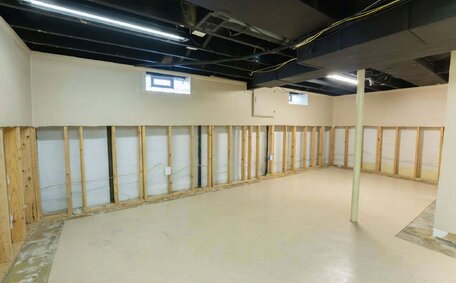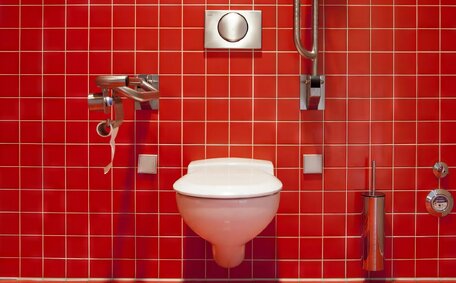Introduction to hot water system inspections
Regular hot water system inspections are crucial for maintaining efficiency, safety, and preventing potential issues. Proper maintenance can curb excessive energy use, resulting in significant energy and cost savings.
An inspection should encompass key components like the pressure relief valve, anode rod, and heating elements, as well as checking pipe insulation and airflow. Regular water heater inspections are vital for optimal performance, extended lifespan, and reducing leak or flood risks.
Experts advise that solar hot water systems undergo thorough inspections every 1-5 years based on their type and age, with complex solar and heat pump systems requiring annual servicing. DIYers can conduct basic monthly inspections of your hot water unit by checking valves, pipes, and tanks for leaks, corrosion, odd sounds or smells.
While you can perform some preventative maintenance, complex systems should be serviced by a professional plumber to prevent injury or damage. Should issues arise between scheduled inspections, it’s important to contact your service agent or a licensed plumber immediately.
Types of hot water systems and recommended inspection timelines
Several types of hot water systems exist, each requiring specific maintenance:
- Electric hot water systems - Should be inspected once every 2-3 years to check heating element, thermostats, and anode rods.
- Your gas water heater requires an annual inspection to examine burners, ventilation, gas valves, and flue pipes.
- Your solar hot water systems with solar PV need yearly checkups to ensure solar collector panels, pumps, and heat exchangers are functioning properly.
- Heat pumps and similar heating systems should be serviced annually to maintain optimal efficiency.
- Your water heater must be checked every 1-2 years, especially if it’s a continuous flow system, for scale buildup, pressure inconsistencies, and clean burner operation.
Professional inspection schedules may vary due to factors like usage, water quality, and manufacturer guidelines. DIY maintenance such as flushing valves or inspecting insulation may need to be carried out more often.
Key components to inspect in your hot water system
When inspecting your hot water system, there are a few key components that technicians focus on:
- Anode rod - The sacrificial rod that impedes tank corrosion needs service every five years and replacement every 3-5 years.
- Temperature relief valve - Easing lever releases excess water pressure to prevent tank explosions and ensure safe water temperature levels. Needs checking every six months.
- Heating elements - Electric element rods, crucial for heating water in the system, require inspection for scale buildup and potential malfunctions.
- Insulation around pipes and tanks, which bolsters efficiency, should be checked regularly to prevent damaging air leaks.
- Water connections - Your water supply lines and fittings can leak, and should therefore be checked for cracks or loose connections.
- Electrical wiring - For electric water systems, ensure that all wires and connections are inspected, as pressure can build in the system, posing hazard risks.
- Ventilation & airflow - Proper ventilation maintains efficiency. Check for obstructions around gas water heaters.
Professional plumbing inspections thoroughly examine timers, thermostats, burner assemblies, and heat exchanger coils.
Signs your hot water system needs servicing
Several unmistakable signs suggest the need for professional servicing or potential replacement of your hot water system:
- Leaking water - Drips or puddles under the tank often signal cracks, loose fittings or corrosion.
- Rusty water - Discoloured or rust-flecked water points to internal corrosion and failing tank integrity.
- Odd smells - Unusual egg, methane or rotten smells suggest bacterial buildup requiring disinfection.
- Loud noises - Clanging, knocking or rumbling sounds can mean sediment buildup or failing components.
- Long recovery times - If hot water depletes quickly and reheats slowly, your heater is likely inefficient and in need of service.
- High energy bills - Spikes in energy costs despite less usage indicate your system is working overtime and wasting energy.
Don’t ignore these warning signs. Enlist a qualified professional plumber for water heater inspections to prevent severe tank failures, flooding, or dangers from gas leaks and electrical problems.
Conducting a basic inspection of your hot water system
You can perform a basic monthly visual inspection of your hot water unit at home. This proactive approach helps you address water heater concerns before they escalate. Here are some steps to follow:
- Check out your hot water tank for any wet spots or rust stains, which can signal leaks from cracks or fittings.
- Inspect the drain line and PTR valves for discharge or leakage, indicative of parts that may require replacement.
- Listen for unusual noises - rumbling, clanging or hissing - from your water tank and investigate the cause immediately.
Also, annual flushing helps maximise efficiency and prevent harmful sediment buildup:
- To begin maintenance, first turn off your power supply or gas and let the water cool for safety.
- Connect a hose to the drainage valve and route cold water to a safe drainage area.
- Open the hot tap to expel water, removing any sediment or debris.
- Close drainage valve once new water runs clean and reconnect your water lines.
DIYers can handle these basic system checks, but some maintenance is best left to qualified technicians to avoid injuries. If issues arise that exceed your expertise, promptly contact a licensed plumber for servicing or repairs.
When professional servicing is required
Consult a qualified plumber for servicing when your hot water system is showing signs of needing attention in the following situations:
- You notice any of the warning signs like leaks, odd noises or smells, rusty water, etc. Professionals possess the expertise to diagnose and resolve these issues that can occur without warning.
- When your water heater type requires standard maintenance, usually every 1-5 years as per manufacturer guidelines, seek professional servicing. Technicians undertake checks beyond DIY capabilities to optimise performance.
- Should you encounter repairs too complex for DIY, professional servicing is required. Attempting complex repairs risks causing damage your water system plus injuries from electricity, gas lines, or hot water.
- Professional help is essential when installing a new hot water system. Professionals guarantee appropriate installation and adherence to safety regulations.
- You have an advanced hot water system like solar, heat pumps or tankless systems. Their specialised components require expert servicing.
For all aspects where plumbing can assist in your needs or repairs, contact your local qualified technicians at St Peters Plumbing on 1300 349 338. We service all hot water heaters and provide preventative maintenance to maximise efficiency plus safety.
Maintaining efficiency through regular hot water system care
Regular maintenance contributes to the efficient operation of your system, leading to energy and cost savings. Technicians perform essential tune-ups during regular servicing to extend your system’s lifespan.
Replacing an anode rod can help prevent corrosion from damaging the tank. Flushing sediment build up improves water heating performance. Checking insulation, pipes and valves reduces costly heat loss and leaks.
Properly maintained systems can last over 10 years on average, while neglected ones may fail within 5-7 years. The $150-$300 fee for annual or biennial servicing is minimal compared to the $1,000-$5,000 cost of a newly installed system.
We recommend budgeting for annual hot water heater care rather than emergency repairs down the line. Keeping your system finely tuned through inspections delivers savings on energy and repairs for years of reliable hot water delivery.
Ensuring safety through proper hot water system maintenance
Undertaking maintenance of your water system is critical for ensuring safety. Without appropriate relief valves, pressure buildup or overheating could lead to explosions, scalding, or fires. It is advisable to have relief valves inspected every six months.
During servicing, technicians examine valves to ensure they respond correctly to safe temperature pressure relief thresholds. They’ll also check that discharge pipes safely redirect released pressure away from people or property.
Regular replacement of anode rods prevents tank corrosion which can result in cracks or leaks. Checking insulation prevents heat loss raising surface temperatures. Routine maintenance with due care avoid any potential electrical shorts or gas leaks from becoming dangers.
Neglected systems can increase risks, including carbon monoxide emissions, leading to numerous home fires annually in Australia. Prevent your system from becoming hazardous. Allocating $100-$150 annually for a licenced plumber’s inspection ensures critical safety measures that go beyond solo efforts, safeguarding your home.
Frequently asked questions about hot water system inspections
How often should hot water systems be inspected?
Water heaters should be inspected by professionals every 1-5 years, depending on the unit’s age. More complex systems like solar or heat pumps need yearly checkups. DIYers should do a monthly visual check for leaks or issues.
What are signs my system needs servicing?
Leakages, rust-tinged water, strange odours or sounds, prolonged heating times, and energy bill increases are all red flags. Don’t ignore these indicators - contact a plumber immediately.
Can I inspect my own hot water system?
Yes, homeowners can and should conduct a monthly visual inspection of their hot water heater by checking for leaks and other visible issues. It’s also advisable to flush tank annually. However, to avoid any complications, some maintenance tasks require professional expertise.
Why is servicing my hot water system important?
Regular professional servicing optimises system efficiency for energy savings, extends service life, and safeguards against hazards like corrosion, overpressure, and electrical or gas faults.
Does servicing improve safety?
Absolutely.
Regular replacement of anode rods prevents failures in tank integrity. Checking valves prevents dangerous pressure buildup. Examining components reduces risks of electric shorts, fires, or scalding. Routine maintenance is key to maintaining essential safety protocols.
How much does hot water system servicing cost annually?
Setting aside $100-$300 per year for professional servicing offers peace of mind and ensures your system’s preparedness, regardless of its type. This small annual cost seems trivial considering it can add a decade to your water heater’s lifespan and prevent $1000s in emergency repairs.






